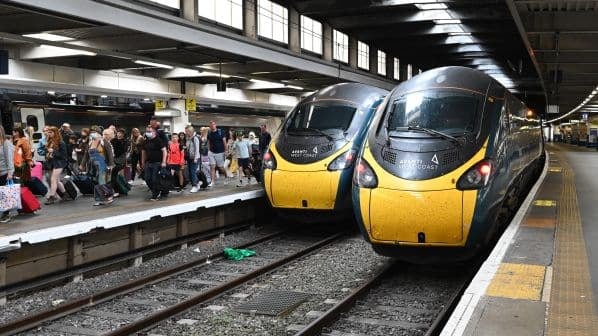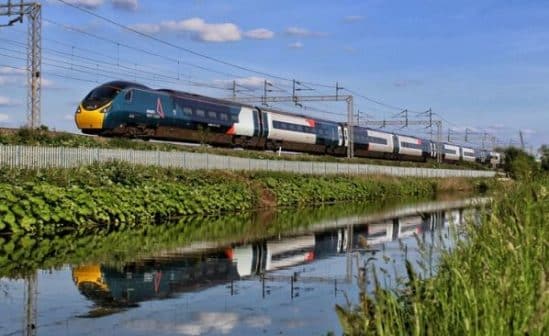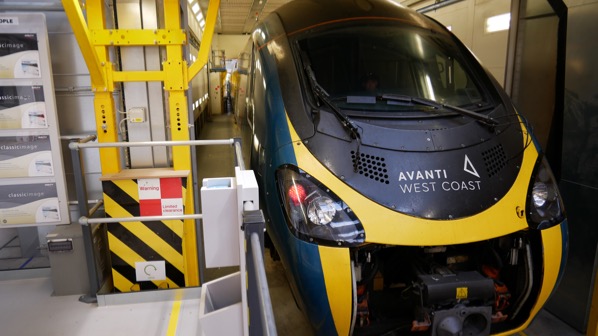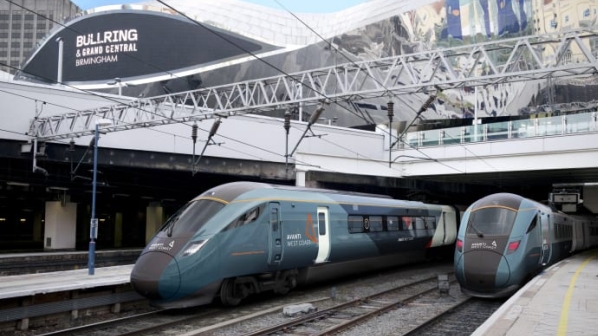BRITAIN’s Department for Transport (DfT) has awarded a new long-term contract for the operation of West Coast inter-city passenger services after the operator implemented a recovery plan following a period of poor performance.
The DfT has also awarded a four-year contract to Arriva to continue to operate CrossCountry services.
The new National Rail Contract (NRC) for Avanti has been awarded to the West Coast Partnership (WCP) of FirstGroup (70%) and Trenitalia UK (30%), which comprises Avanti West Coast and West Coast Partnership Development, the shadow operator for the High Speed 2 (HS2) programme.
Starting on October 15, the contract will have a core term of three years and a maximum possible term of nine years. After three years, the secretary of state for transport can terminate the contract at any point with three months’ notice.
The NRC is a management contract under which the DfT retains all revenue risk and all cost risk up to agreed annual business plan budgetary levels. There are contractual change mechanisms that allow the annual budget to be increased for items outside of the operating company’s control, such as inflation, or changes requested by the DfT.
WCP will earn a fixed annual management fee of £5.1m to deliver the contract with the opportunity to earn a variable annual fee of up to £15.8m based on a number of criteria. The variable fee is scored against five performance categories: operational performance, customer satisfaction, financial performance, HS2 shadow operator delivery, and HS2 shadow operator financial management.
The fixed fee and variable fee potential remains flat for the contractual term and is only subject to escalation after the core term if CPI inflation is outside agreed bands. The NRC makes provision for additional incentive fees to be earned for participation in significant industry change projects outside normal operation to be agreed between WCP and the DfT.
The contract award comes after the DfT placed Avanti on two consecutive short-term, six-month contracts from October 2022, and ordered it to develop a recovery plan aimed at addressing poor performance on key routes, including those from London to Birmingham and Manchester, which resulted from a shortage of available drivers.
Alongside the recovery plan, which prioritised training new drivers, reducing reliance on rest-day working and making advance purchase tickets available earlier, a recovery timetable was introduced in December 2022 which has seen services increase from 180 trains per day to 264 on weekdays, the highest level in more than two years.
By the end of the first six-month contract in March, Avanti had already made significant progress towards its recovery, with 40% more services being run and cancellations within Avanti’s control falling to 4.2%. Those arrangements were further extended to ensure these improvements would continue and passengers would feel confident in using its services again.
Since then, Avanti’s has reported further service improvements:
- cancellations have consistently been below 3% since March, and as low as 1.1% in July, down from 13% in January
- more than 90% of trains now arrive within 15 minutes of their scheduled time, up from 75% in December 2022, and
- more than 100 additional drivers have been trained and begun work since April 2022.
Avanti has also made improvements to onboard passenger facilities including better seats, lighting and charging points, and introduced the Travel Companion, a WhatsApp channel which passengers with accessibility needs can use to get real-time assistance and information on their journeys.
Avanti is working through a £117m refurbishment programme for its fleet of 56 Pendolino trains which it says is delivering a step-change in onboard passenger experience. Further improvements have included the introduction of a new Standard Premium travel class, a new low-cost flexible ticket and initiatives to support passengers who require additional assistance.
Testing has also commenced with the first two of 13 class 805 bi-mode trains that Avanti ordered from Hitachi Rail in December 2019. These trains will be used on services from London Euston to Shrewsbury, Chester, Gobowen and North Wales. The operator has also ordered 10 class 807 trains, which will operate between Euston and Birmingham New Street, Blackpool North and Liverpool Lime Street alongside the existing class 390 Pendolino fleet.
“Our WCP team has worked hard over recent months to deliver improvements for Avanti passengers, including an increase in the number of services in the timetable and high levels of reliability for customers,” says FirstGroup CEO, Mr Graham Sutherland. “The new NRC agreed today will allow our team to use its expertise on further improvements. These include programmes to refurbish the existing fleet and to introduce new, more environmentally-friendly trains, which will encourage more passengers to return to the network and help deliver Britain’s decarbonisation agenda.”
“The routes Avanti West Coast operate provide vital connections, and passengers must feel confident that they can rely on the services to get them where they need to be at the right time,” says transport secretary, Mr Mark Harper. “Over the past year, short-term contracts were necessary to rebuild the timetable and reduce cancellations. Now Avanti is back on track, providing long-term certainty for both the operator and passengers will best ensure that improvements continue.”
The DfT says it will stay in close contact with the operator and local stakeholders to monitor Avanti’s performance as it continues its progress to a sustained recovery.
CrossCountry
The DfT also awarded Arriva a new NRC to operate CrossCountry. The contract has a core term of four years and a maximum possible term of eight years.
The contract will also begin on October 15 and includes additions to improve services, such as the replacement of the now-retired High Speed Trains (HST) with more modern equivalents, refurbishment of existing CrossCountry train fleets, and the introduction of direct daily services between Cardiff and Yorkshire, northeast England and Edinburgh from December 2024.





